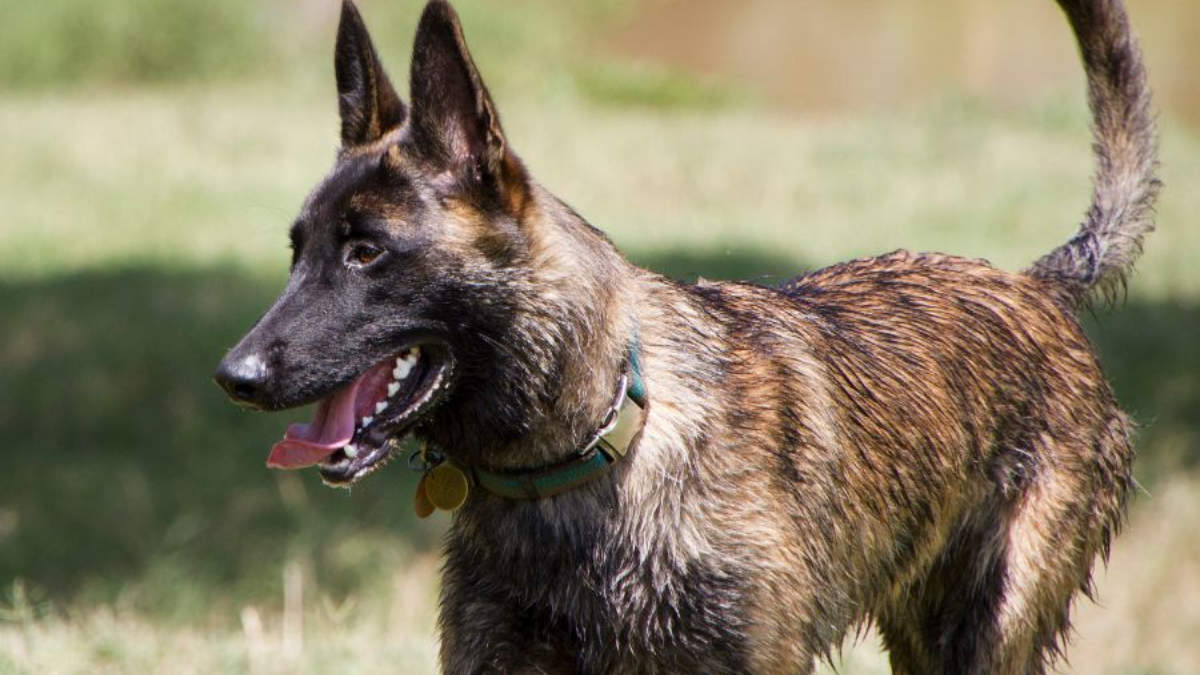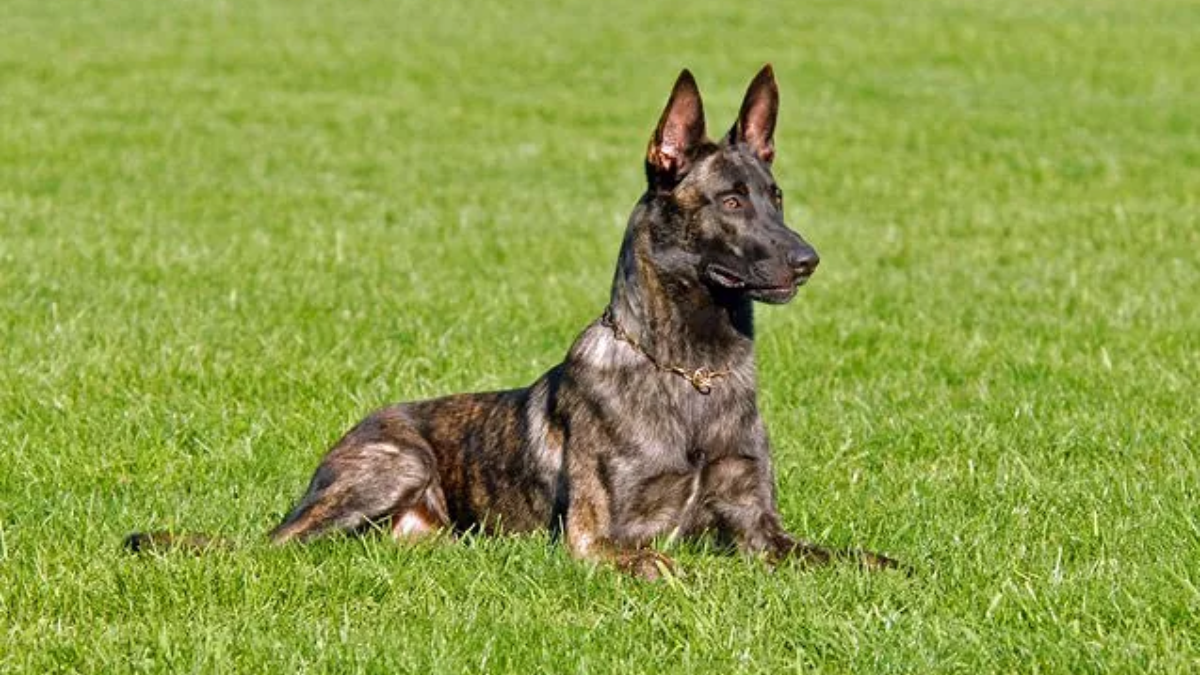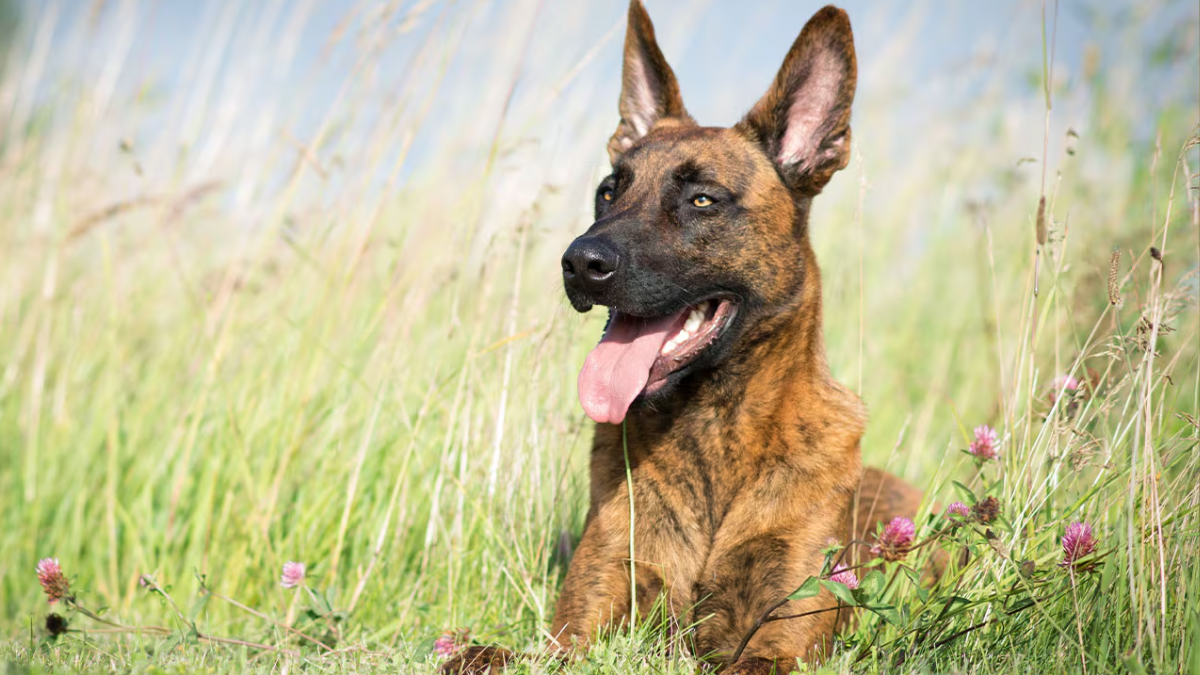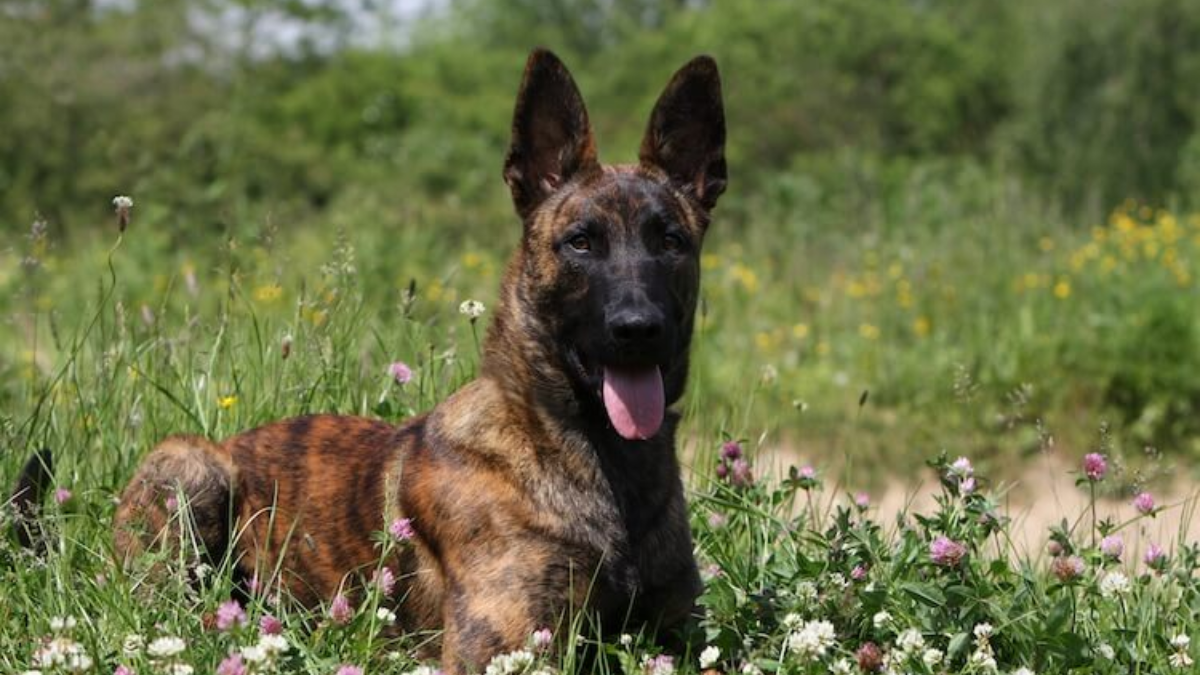The Dutch Shepherd is a highly intelligent and versatile breed of dog that has been used for various tasks, including herding, police work, and as a family companion. However, like any breed, Dutch Shepherds can exhibit aggressive behavior if not properly trained and socialized. Owners need to address Dutch Shepherd Dog aggression: through appropriate training and socialization methods. With consistent guidance and positive reinforcement, aggressive tendencies can be effectively managed, ensuring a well-balanced and harmonious relationship between the Dutch Shepherd and its family.

Aggression in Dutch Shepherds can manifest in various ways, including growling, barking, biting, and lunging. While some level of aggression is normal for any dog breed, excessive aggression can be dangerous and may result in injury to humans or other animals. Owners of Dutch Shepherds need to understand the signs of aggression and how to address it.
In this article, we will explore the topic of Dutch Shepherd dog aggression, including the causes, signs, and how to train and socialize your Dutch Shepherd to prevent and manage aggressive behavior.
Understanding Dutch Shepherd Aggression
Defining Aggression in Dutch Shepherds
Dutch Shepherds are an intelligent and active breed of dog that requires proper training and socialization to prevent aggressive behavior. Aggression in Dutch Shepherds can be defined as any behavior that is intended to cause harm or injury to a person or another animal. This can include growling, barking, biting, or lunging.
It is important to note that not all aggression in Dutch Shepherds is the same. Some dogs may display aggression due to fear or anxiety, while others may exhibit aggression due to dominance or territorial issues. Understanding the underlying cause of the aggression is essential in developing an effective treatment plan.
Common Triggers of Aggression
Dutch Shepherds may exhibit aggression in response to a variety of triggers. Some common triggers of aggression in Dutch Shepherds include:
- Lack of socialization: Dogs that are not properly socialized may become fearful or anxious in new situations, leading to aggressive behavior.
- Fear: Dutch Shepherds may become aggressive when they feel threatened or scared.
- Dominance: Some Dutch Shepherds may exhibit aggression as a way to establish dominance over other animals or people.
- Territoriality: Dutch Shepherds may become aggressive when they feel that their territory is being threatened.
- Pain or illness: Dogs that are in pain or experiencing illness may become irritable and exhibit aggressive behavior.

It is important to note that aggression in Dutch Shepherds is not always predictable and can be triggered by a variety of factors. Owners need to monitor their dog's behavior and seek professional help if they notice any signs of aggression. Proper training and socialization can go a long way in preventing aggressive behavior in Dutch Shepherds.
Characteristics of the Dutch Shepherd
Breed Temperament
The Dutch Shepherd is an intelligent, protective, alert, loyal, and obedient breed. They are known for their strong work ethic and herding instinct, making them excellent working dogs. However, due to their protective nature, they can be wary of strangers and may exhibit aggression towards them if not properly socialized.
Physical Attributes
The Dutch Shepherd is a medium-sized breed with a muscular build and a brindle coat. They have almond-shaped eyes that are typically dark brown. Their ears are pointed and stand upright, giving them a very alert and attentive appearance. They are highly agile and have a lot of endurance, making them well-suited for a variety of tasks.
History and Development
The Dutch Shepherd originated in the Netherlands and was developed as a versatile working dog. They were used for herding, guarding, and even as police dogs. During World War II, the breed was nearly extinct, but dedicated breeders worked hard to revive the breed and preserve its unique characteristics. Today, the Dutch Shepherd is still a popular working breed but also makes a loyal and loving companion for families who are willing to provide them with plenty of exercise and socialization.
Training and Socialization
Importance of Early Socialization
Early socialization is crucial for Dutch Shepherd Dogs to ensure they develop into well-rounded and obedient pets. It is important to expose them to different people, animals, and environments to prevent fear and aggression later in life. Puppies should be introduced to different social situations from a young age, including meeting strangers and other dogs in a controlled environment.

Training Techniques
Consistent training is essential for Dutch Shepherd Dogs to develop good behavior. Positive reinforcement techniques such as rewards and praise are effective in encouraging good behavior. Redirecting unwanted behavior is also necessary to prevent the development of aggressive tendencies. It is important to remain calm and patient during training sessions to avoid frustration and confusion.
Crate Training and Its Benefits
Crate training is an effective tool to aid in the training and socialization of Dutch Shepherd Dogs. It provides a safe and comfortable space for the dog to retreat to when feeling overwhelmed or anxious. Crate training also helps to prevent destructive behavior and can aid in-house training. It is important to introduce the crate gradually and use positive reinforcement techniques to encourage the dog to use it willingly.
Overall, consistent training and early socialization are essential for Dutch Shepherd Dogs to develop into well-behaved and obedient pets. Providing mental stimulation and regular exercise is also important to prevent boredom and destructive behavior. With patience and consistent training, Dutch Shepherd Dogs can become calm and intelligent companions.
Exercise and Mental Stimulation
Daily Exercise Needs
Dutch Shepherds are an active breed that requires daily exercise to maintain their physical health and mental well-being. They have a high energy level and need to burn off excess energy through exercise. A daily exercise routine of at least 30 minutes to an hour is recommended to keep them healthy and happy.
Activities such as walking, running, hiking, and playing fetch are great ways to provide exercise for a Dutch Shepherd. They also enjoy activities that involve agility and herding instincts, such as search and rescue, frisbee, and sheep herding.
Activities for Mental Engagement
In addition to physical exercise, Dutch Shepherds also require mental stimulation to prevent boredom and destructive behavior. Activities that engage their minds include puzzle toys, interactive games, and obedience training.
Puzzle toys are a great way to stimulate a Dutch Shepherd's mind and challenge their problem-solving skills. Interactive games such as hide-and-seek or tug-of-war can also provide mental stimulation while bonding with their owner.

Obedience training is essential for a Dutch Shepherd's mental well-being and socialization. It not only teaches them basic commands but also provides mental stimulation and a sense of accomplishment.
In conclusion, providing daily exercise and mental stimulation is crucial for a Dutch Shepherd's physical and mental health. Owners should ensure that their Dutch Shepherd receives enough exercise and mental stimulation to prevent boredom and destructive behavior.
Managing and Preventing Aggression
Recognizing Dominance and Territorial Behaviors
Dutch Shepherds are naturally protective and territorial dogs. They may show dominant behaviors when they feel threatened or when they want to establish their position in the pack. Owners must be aware of these behaviors and learn to recognize them to prevent aggression.
Some of the signs of dominance and territorial behavior in Dutch Shepherds include growling, barking, snarling, and biting. They may also show body language such as raised hackles, stiff posture, and a fixed stare.
Strategies for Aggression Prevention
Preventing aggression in Dutch Shepherds requires consistent training and socialization. Owners must establish themselves as the alpha in the pack and teach their dogs to respect their authority. Socialization should start early and involve exposure to different people, animals, and environments.
Owners can also prevent aggression by redirecting their dog's behavior. For example, if a Dutch Shepherd starts growling or barking at a stranger, the owner can redirect their attention to a toy or treat. This helps to reinforce positive behavior and prevent aggression.
Dealing with Established Aggression
If a Dutch Shepherd has established aggressive behavior, owners must take immediate action to prevent further problems. They should seek the help of a professional dog trainer who can assess the situation and provide advice on how to manage the behavior.
Owners should also avoid punishing their dogs for aggressive behavior as this can exacerbate the problem. Instead, they should focus on positive reinforcement and consistent training to prevent further aggression.
Overall, Dutch Shepherds can be affectionate and loyal pets when properly trained and socialized. Owners must be aware of their dog's territorial and protective tendencies and take steps to prevent aggression from developing. With consistent training and management, Dutch Shepherds can be wonderful companions for families and individuals alike.
Dutch Shepherd as a Family Pet
The Dutch Shepherd is a popular choice for families who are looking for a loyal and obedient family pet that is also a good guard dog. This breed is known for its high intelligence, trainability, and reliability. However, before bringing a Dutch Shepherd into a home, it is important to understand their compatibility with children and other pets, as well as their behavior in a home environment.
Compatibility with Children and Other Pets
Dutch Shepherds can be great family pets, but they may not be suitable for families with very young children. This breed is active and energetic, and they may accidentally knock over small children or play too rough. However, with proper training and socialization, Dutch Shepherds can be very child-friendly and make great playmates for older children.

When it comes to other pets, Dutch Shepherds may be wary of strangers and may be protective of their home and family. This breed has a strong prey drive, so they may not be compatible with small pets such as cats or rabbits. However, with proper training and socialization, Dutch Shepherds can learn to coexist peacefully with other pets in the home.
The Dutch Shepherd in a Home Environment
Dutch Shepherds are active dogs that require a lot of exercise and mental stimulation. They are best suited for an active family with a yard where they can run and play. This breed is highly trainable and obedient, making them a great choice for families who are willing to put in the time and effort to train them properly.
As a shepherd dog, Dutch Shepherds are naturally protective of their home and family. They are loyal and trustworthy, and they make great guard dogs. However, they may be wary of strangers and may require proper socialization to prevent aggressive behavior.
Overall, the Dutch Shepherd can be a great family pet for the right family. They are active, loyal, and obedient, but they require proper training and socialization to ensure that they are well-behaved and compatible with children and other pets in the home.
Health and Care Considerations
Grooming Needs
The Dutch Shepherd is a breed that requires moderate grooming. They have a short and dense coat that sheds seasonally. Regular brushing can help to remove loose hair and prevent matting. The breed's coat is also water-resistant, so it is important to avoid over-bathing, as it can strip the coat of natural oils. Occasional baths with a mild dog shampoo are sufficient to keep the coat clean and healthy.
The breed's ears should be checked regularly for signs of infection, and the nails should be trimmed regularly to prevent overgrowth. Dental hygiene is also important, and regular brushing can help prevent dental problems.

Common Health Issues
Like all breeds, the Dutch Shepherd is prone to certain health issues. Some of the most common health issues in the breed include hip dysplasia, elbow dysplasia, and eye problems such as progressive retinal atrophy. Responsible breeders will perform health screenings on their breeding dogs to help reduce the incidence of these health issues in their puppies.
Careful attention to the dog's diet and exercise routine can also help to prevent certain health issues. Obesity is a common problem in dogs and can lead to a variety of health issues including joint problems and diabetes. Providing regular exercise and a balanced diet can help to maintain a healthy weight and prevent these issues.
Overall, the Dutch Shepherd is a relatively healthy breed with a lifespan of around 12-15 years. Regular veterinary checkups and attention to the dog's health and well-being can help to ensure a long and happy life for this loyal and intelligent breed.
Choosing a Dutch Shepherd
When considering getting a Dutch Shepherd, there are a few things to keep in mind to ensure a successful match. This section will cover the main considerations when choosing to adopt or buy a Dutch Shepherd, as well as what to look for in a reputable breeder.
Adoption vs. Buying from a Breeder
One option for obtaining a Dutch Shepherd is to adopt from a shelter or rescue organization. This can be a great way to give a dog in need a loving home. However, it is important to keep in mind that dogs in shelters may have unknown histories and may require additional training and socialization.
Another option is to buy a Dutch Shepherd from a reputable breeder. This can ensure that the dog comes from a healthy bloodline and has been well-socialized from a young age. Reputable breeders will also provide documentation of health clearances and may offer support and guidance throughout the dog's life.
What to Look for in a Reputable Breeder
When choosing a breeder, it is important to do your research to ensure that they are reputable and ethical. Look for breeders who are members of breed clubs and organizations, and who have a history of producing healthy, well-tempered dogs.

Reputable breeders will also be transparent about their breeding practices and will provide documentation of health clearances for both the parents and the puppies. They will also be happy to answer any questions you may have and will provide support and guidance throughout the dog's life.
Overall, whether you choose to adopt or buy from a breeder, it is important to choose a Dutch Shepherd that fits your lifestyle and personality. With their intelligence and trainability, Dutch Shepherds can make excellent companions for the right owner.
Conclusion:
In conclusion, managing Dutch Shepherd Dog aggression: requires a multifaceted approach rooted in patience, understanding, and effective training methods. By acknowledging the breed's innate characteristics and tendencies, owners can proactively address potential aggression issues through proper socialization, obedience training, and consistent reinforcement of positive behaviors. Seeking guidance from experienced professionals or trainers specializing in Dutch Shepherd behavior can provide invaluable insights and support tailored to the individual needs of your dog.
Additionally, creating a structured environment with clear boundaries and routines can help alleviate stress and anxiety, reducing the likelihood of aggressive behavior. Owners must remain vigilant, proactive, and committed to ongoing training and management strategies to ensure the well-being of their Dutch Shepherd and the safety of those around them. With dedication, patience, and the right approach, owners can effectively address and mitigate aggression in Dutch Shepherds, fostering a strong and harmonious bond based on trust and mutual respect. Remember, addressing aggression requires time, effort, and consistency, but the rewards of a well-behaved and balanced Dutch Shepherd are well worth the investment.
Frequently Asked Questions
- What triggers aggression in Dutch Shepherd dogs towards other animals?
- Dutch Shepherds are naturally protective and territorial, which can lead to aggressive behavior towards other animals. This behavior can be triggered by a perceived threat to their family or property, or by unfamiliar animals encroaching on their territory. It is important to socialize Dutch Shepherds from a young age and provide proper training to prevent aggressive behavior towards other animals.
- How can one manage a Dutch Shepherd's aggressive behavior towards strangers?
- Managing a Dutch Shepherd's aggressive behavior towards strangers requires proper training and socialization. Owners should work with a professional trainer to develop a training plan that includes positive reinforcement techniques and desensitization exercises. It is important to establish clear boundaries and rules for the dog and to never encourage aggressive behavior towards strangers.
- What are common signs of aggression in female Dutch Shepherds?
- Common signs of aggression in female Dutch Shepherds include growling, barking, snarling, and biting. These behaviors may be triggered by a perceived threat to their family or territory, or by unfamiliar people or animals. Female Dutch Shepherds may also exhibit protective behavior towards their puppies, which can manifest as aggression towards humans or other animals.
- How does handler aggression manifest in Dutch Shepherd dogs?
- Handler aggression in Dutch Shepherds can manifest as aggressive behavior towards their owners or handlers. This behavior may be triggered by a lack of trust or respect for the handler, or by a perceived threat to their family or territory. It is important for owners to establish a strong bond with their Dutch Shepherd and to provide consistent, positive training to prevent handler aggression.
- Can Dutch Shepherds exhibit protective aggression, and how is it handled?
- Dutch Shepherds are known for their protective nature and may exhibit protective aggression towards their family or property. This behavior can be managed through proper training and socialization, and by establishing clear boundaries and rules for the dog. Owners should work with a professional trainer to develop a training plan that includes positive reinforcement techniques and desensitization exercises.
- What are effective training techniques to curb Dutch Shepherd aggression?
- Effective training techniques to curb Dutch Shepherd aggression include positive reinforcement, desensitization exercises, and establishing clear boundaries and rules for the dog. Owners should work with a professional trainer to develop a training plan that is tailored to their dog's specific needs and temperament. It is important to never use punishment or physical force as a training technique, as this can exacerbate aggressive behavior.




